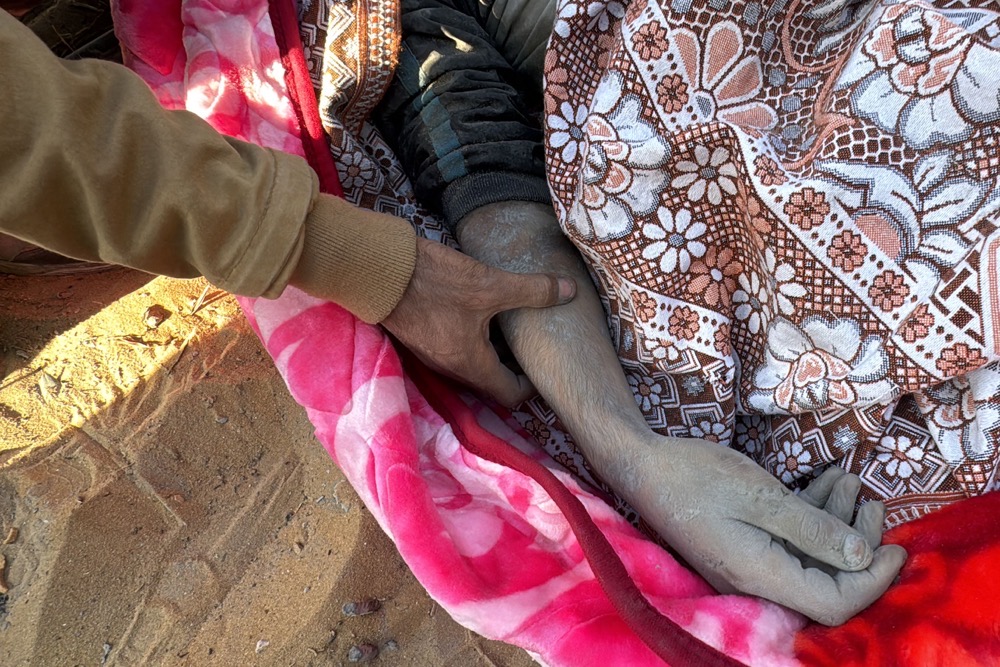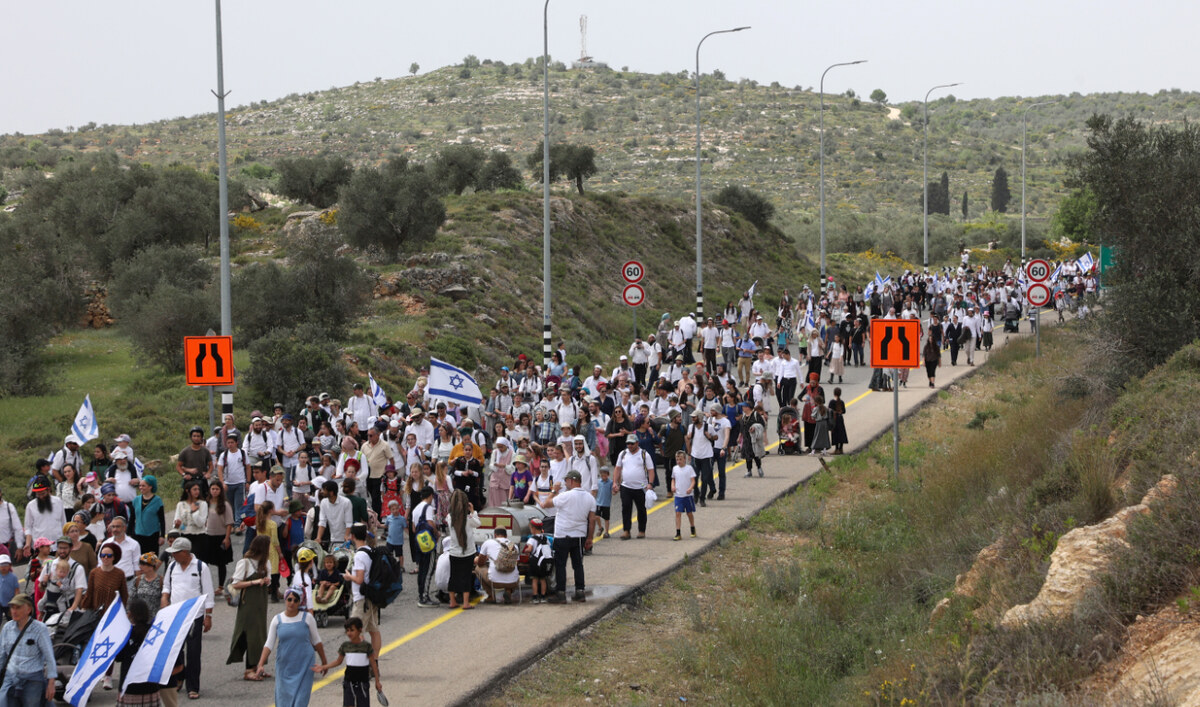DEIR AL-BALAH, Gaza Strip: Two Israeli airstrikes in the northern Gaza Strip on Tuesday killed at least 88 people, including dozens of women and children, health officials said, and the director of a hospital said life-threatening injuries were going untreated because a weekend raid by Israeli forces led to the detention of dozens of medics.
Israel has escalated airstrikes and waged a bigger ground operation in northern Gaza in recent weeks, saying it is focused on rooting out Hamas militants who have regrouped after more than a year of war. The intense fighting is raising alarm about the worsening humanitarian conditions for hundreds of thousands of Palestinians still in northern Gaza.
Concerns about not enough aid reaching Gaza were amplified Monday when Israeli lawmakers passed two laws to cut ties with the main UN agency distributing food, water and medicine, and to ban it from Israeli soil. Israel controls access to both Gaza and the occupied West Bank, and it was unclear how the agency known as UNRWA would continue its work in either place.
“The humanitarian operation in Gaza, if that is unraveled, that is a disaster within a series of disasters and just doesn’t bear thinking about,” said UNRWA spokesperson John Fowler. He said other UN agencies and international organizations distributing aid in Gaza rely on its logistics and thousands of workers.

Palestinian remove a body from the rubble of a building hit by an Israeli strike in Beit Lahia. (AFP)
In Lebanon, the militant group Hezbollah said Tuesday it has chosen Sheikh Naim Kassem to succeed longtime leader Hassan Nasrallah, who was killed in an Israeli airstrike last month. Hezbollah, which has fired rockets into Israel since the start of the war in Gaza, vowed to continue with Nasrallah’s policies “until victory is achieved.”
A short while later, eight Austrian soldiers serving in the UN peacekeeping force in southern Lebanon were reported lightly injured in a midday missile strike.
The peacekeeping force, known as UNIFIL, said the rocket that struck its headquarters in Lebanon was “likely” fired by Hezbollah, and that it struck a vehicle workshop.
Strike in northern Gaza comes as Israel wages a major operation there
The Gaza Health Ministry’s emergency service said at least 70 people were killed and 23 were missing in the first of Tuesday’s strikes in the northern Gaza town of Beit Lahiya. More than half of the victims were women and children, the ministry said. A mother and her five children — some of them adults — and a second mother with six children, were among those killed in the attack on a five-story building, according to the emergency service.
A second strike on Beit Lahiya on Tuesday evening killed at least 18 people, according to the Health Ministry, which does not distinguish between civilians and militants in its count.
The nearby Kamal Adwan Hospital was overwhelmed by a wave of wounded women and children, including many who needed urgent surgeries, according to its director, Dr. Hossam Abu Safiya. The Israeli military raided the hospital over the weekend, detaining dozens of medics it said were Hamas militants.
“The situation is catastrophic in every sense of the word,” Safiya said, adding that the only remaining doctor at the hospital was a pediatrician. “The health care system has collapsed and needs an urgent international intervention.”
US State Department spokesperson Matthew Miller referred to the “horrifying incident” in Beit Lahiya in comments to reporters. He said Israel’s yearlong campaign against Hamas has ensured it cannot repeat the type of attack that started the war in Gaza, but that “getting to here came at a great cost to civilians.”
The Israeli military said it was investigating the first Beit Lahiya strike; it did not immediately comment on the second.
Israel’s recent operations in northern Gaza, focused in and around the Jabaliya refugee camp, have killed hundreds of people and driven tens of thousands from their homes.
The Israeli military has repeatedly struck shelters for displaced people in recent months. It says it carries out precise strikes targeting Palestinian militants and tries to avoid harming civilians, but the strikes often kill women and children.
On Tuesday, Israel said four more of its soldiers were killed in the fighting in northern Gaza, bringing the toll since the start of the operation to 16, including a colonel.

A Palestinian holds the arm of a dead a relative, killed in an overnight Israeli airstrike, in Beit Lahia. (AFP)
As the fighting raged, Hamas signaled it was ready to resume ceasefire negotiations, although its key demands — a permanent ceasefire and full withdrawal of the Israeli military — do not appear to have changed, and have been dismissed in the past by Israel. Senior Hamas official Sami Abu Zuhri said on Tuesday the group has accepted mediators’ request to discuss “new proposals.”
Hezbollah’s new leader has vowed to keep fighting Israel
Hezbollah said in a statement that its decision-making Shoura Council elected Kassem, who had been Nasrallah’s deputy leader for over three decades, as the new secretary-general.
Kassem, 71, a founding member of the militant group established following Israel’s 1982 invasion of Lebanon, had been serving as acting leader. He has given several televised speeches vowing that Hezbollah will fight on despite a string of setbacks.
Hezbollah began firing rockets into Israel, drawing retaliation, after Hamas’ surprise attack out of Gaza on Oct. 7, 2023. Iran, which backs both groups, has also directly traded fire with Israel, in April and then again this month.
The tensions with Hezbollah boiled over in September, as Israel unleashed a wave of heavy airstrikes and killed Nasrallah and most of his senior commanders. Israel launched a ground invasion into Lebanon at the start of October.
Hezbollah fired dozens of rockets into northern Israel on Tuesday, killing one person in the northern city of Maalot-Tarshiha, authorities said. Israeli strikes in the coastal city of Sidon killed at least five people, the Lebanese Health Ministry said.
Israeli laws targeting UN agency could further restrict aid
UNRWA and other international groups continued to express outrage Tuesday about the Israeli parliament’s decision to cut ties to the agency.
Israel says UNRWA has been infiltrated by Hamas and that the militant group siphons off aid and uses UN facilities to shield its activities, allegations denied by the UN agency.
Israeli government spokesperson David Mencer vowed that aid will continue to reach Gaza, as Israel plans to coordinate with aid organizations or other bodies within the UN “Ultimately, we will ensure that a more efficient replacement for UNRWA takes its role, not one which is infiltrated by the terrorist organization,” he said.

Demonstrators hold baby vests outside the Houses of Parliament as a tribute to infants killed in Gaza. (Reuters)
Multiple UN agencies rallied Tuesday around UNRWA, calling it the “backbone” of the world body’s aid activities in Gaza and other Palestinian areas. UNRWA provides education, health care and emergency aid to millions of Palestinian refugees from the 1948 war surrounding Israel’s creation and their descendants. Refugee families make up the majority of Gaza’s population.
Israel has sharply restricted aid to northern Gaza this month, prompting a warning from the United States that failure to facilitate greater humanitarian assistance could lead to a reduction in military aid.
In its attack on Israel last year, Hamas killed some 1,200 people, mostly civilians, and took around 250 as hostages. Some 100 hostages are still inside Gaza, a third of whom are believed to be dead.
Israel’s retaliatory offensive has killed over 43,000 Palestinians, according to local health authorities. Around 90 percent of the population of 2.3 million have been displaced from their homes, often multiple times.




































